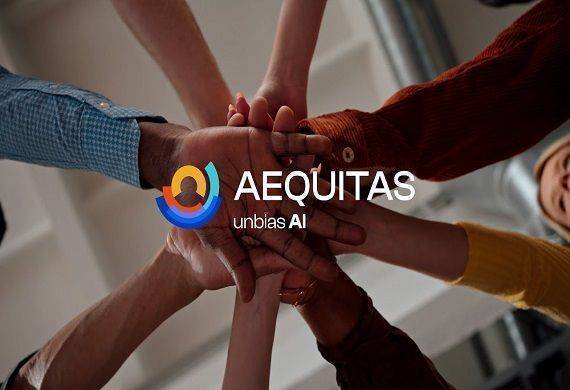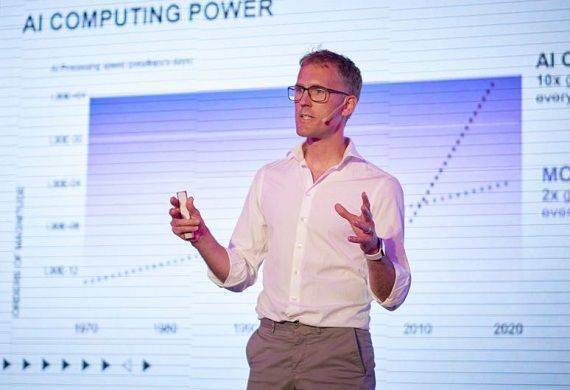AEQUITAS: Building Fair and Trustworthy AI Systems
By Global Leaders Insights Team | Oct 10, 2025

AEQUITAS, a Horizon Europe research project, is redefining how fairness and trust are built into artificial intelligence (AI). Through an innovative experimentation environment, it embeds fairness directly into every stage of the AI lifecycle. By integrating social, legal, and ethical considerations, AEQUITAS ensures that AI systems are designed to reduce discrimination and bias, aligning with key European regulations such as the EU AI Act and the Charter of Fundamental Rights.
You apply for a job and never hear back. You’re denied a small business grant without understanding why. A hospital triage tool seems to work better for some patients than others. Behind decisions like these, AI is often quietly at work—sorting CVs, scoring applications, flagging diagnoses. AEQUITAS is a European initiative that ensures these systems treat people fairly by embedding fairness checks and fixes into every stage of the AI lifecycle.
Key AEQUITAS Components:
- Fair-by-Design (FbD) Methodology: A structured methodology for ensuring fairness at every stage of the AI design and development process, offering tools such as guidelines, exercises, and tests tailored to different stakeholders, with direct links to empirical validation through the Experimenter Tool.
- FairBridge: A modular logic engine that helps developers navigate fairness issues by encoding socio-legal fairness reasoning into a dynamic Q&A system. FairBridge assists users in selecting fairness metrics, identifying sensitive attributes, and recommending mitigation strategies.
- Experimenter Tool: A user-facing platform that facilitates dataset uploads, AI model configuration, fairness assessments, and compliance reporting. It supports the application of bias mitigation techniques and enables stress testing under polarized or synthetic data scenarios to identify performance and fairness boundaries.
- Synthetic Data Generator: A tool that generates both bias-free and polarised datasets, allowing AI systems to be stress-tested for fairness under various scenarios.
Main Results – The Fair-by-Design Methodology
The Fair-by-Design (FbD) methodology is the cornerstone of AEQUITAS, translating ethical and legal principles from the EU AI Act and the Charter of Fundamental Rights into actionable procedures for AI development. It provides structured guidance, checklists, and stakeholder exercises that ensure fairness is considered at every stage of the AI lifecycle—from scoping and data governance to deployment and monitoring. By bridging normative reasoning with empirical experimentation, the FbD methodology delivers a replicable, auditable, and regulation-ready framework for operationalising fairness in high-risk AI systems.
Main Results – The Experimental Environment
At the heart of AEQUITAS is a controlled experimentation environment where AI models are rigorously tested for fairness before deployment. Using both bias-free and polarised synthetic datasets, the platform simulates real-world scenarios to identify and correct unfair behaviours, ensuring AI systems adapt and comply with fairness requirements before reaching users.
The Synthetic Data Generator is crucial in this environment, enabling the creation of bias-free and polarised datasets to simulate real-world situations. If an AI system fails a fairness test, corrective actions are enforced, ensuring the system adapts and becomes more equitable before deployment.
This iterative testing and mitigation process is essential for developing AI systems that are both fair and compliant with legal standards. By using the Controlled Experimentation Environment, AEQUITAS can ensure that fairness is not only a theoretical concept but a practical, actionable measure in real-world AI systems.
The platform enables AI developers, researchers, and regulators to:
- Test AI fairness boundaries: The experimentation environment allows for the simulation of extreme fairness scenarios using synthetic datasets. It provides both bias-free and polarised datasets, pushing AI systems to their fairness limits to uncover potential vulnerabilities in data, algorithms, and outcomes. This stress-testing approach ensures that fairness is not only a theoretical concept but a practical, measurable outcome.
- Iterative Mitigation: As AI models undergo fairness assessments, any identified bias triggers automated mitigation strategies, ensuring that fairness concerns are addressed proactively. This continuous feedback loop ensures AI systems are fine-tuned for fairness at every stage of development.
- Compliance Documentation: The environment generates the necessary compliance-ready documentation, facilitating the transparency and accountability required by regulatory bodies. This feature is critical for ensuring AI systems comply with the EU AI Act, the General Data Protection Regulation (GDPR), and other relevant legal frameworks.
How we tested and validated though real use cases
We didn’t stop at theory. AEQUITAS was validated through six pilots across human resources, healthcare, and socially disadvantaged contexts. Each pilot combined real-world datasets with synthetic stress tests to expose edge-case bias and evaluate the boundaries of fairness mitigation. The experiments tracked fairness KPIs—such as Statistical Parity Difference, Disparate Impact, and Equalized Odds Ratio—and produced audit-ready evidence for compliance and accountability.
Healthcare
Pediatric Dermatology: AI-assisted prediction of pediatric skin diseases, validated with Stable Diffusion-based synthetic image generation to balance underrepresented skin tones.
Everyday impact: more equitable diagnostic accuracy across diverse phototypes.
ECG Prediction: Bias-aware prediction of cardiac outcomes using fairness metrics and synthetic ECG traces to ensure consistent model behaviour across demographic groups.
Everyday impact: safer, fairer clinical decision support for all patients.
Human Resources
Recruiting: Fair-by-design data assessment and model audit ensuring that gender, age, or nationality do not affect hiring outcomes.
Everyday impact: qualified candidates are evaluated on merit, not historical bias.
Job-Matching: End-to-end fairness validation of an AI-driven CV matching tool, integrating Adversarial Debiasing and LLM-based bias assessment to repair gendered and structural imbalances.
Everyday impact: fairer shortlists and transparent candidate–job matching.
Socially Disadvantaged Contexts
Education: Fair-by-design analysis of academic performance prediction using Conditional Demographic Disparity and a new residualization method co-designed with economists.
Everyday impact: early, fair detection of educational disadvantage to direct support where it is most needed.
Child Neglect: AI-assisted identification of child abuse and neglect using a human-in-the-loop LLM-based checklist validated through the Prohibited Social Scoring Assessment.
Everyday impact: vulnerable children are protected through proportionate, bias-aware AI support that safeguards families from unjust profiling.
Also Read: Brazil Justice Barroso to Leave Supreme Court, Aiding Lula
A Step Toward Responsible AI
AEQUITAS is not just a technological solution; it represents a significant shift in how AI systems are built and tested. By incorporating legal and social fairness considerations directly into the design process, AEQUITAS lays the groundwork for a future where AI is not only efficient but also responsible and equitable.


